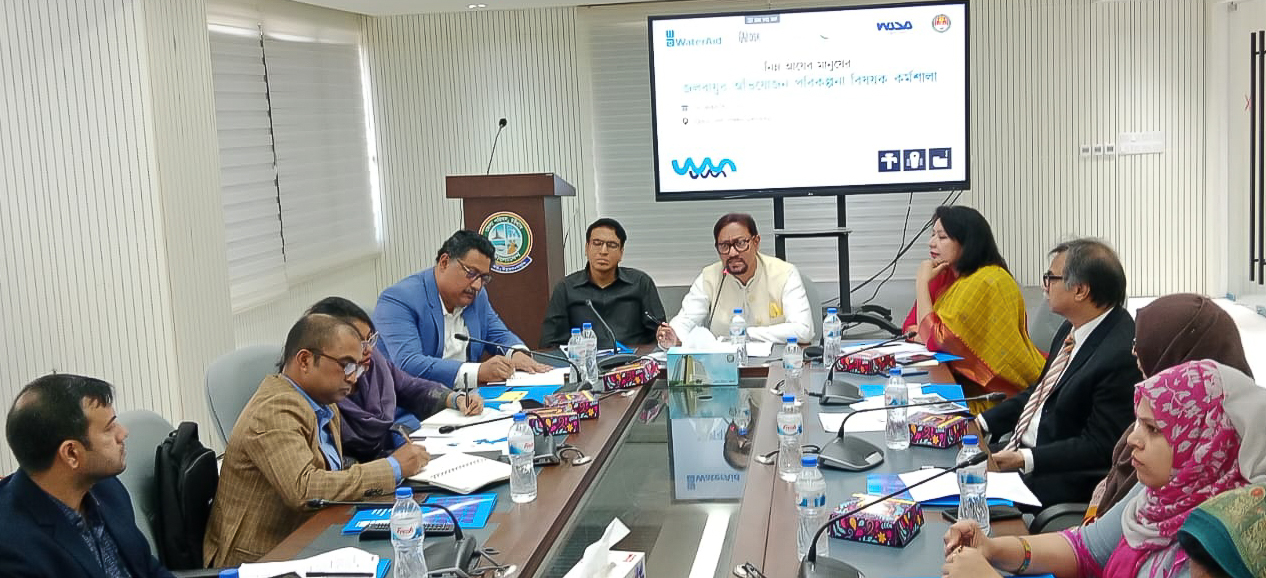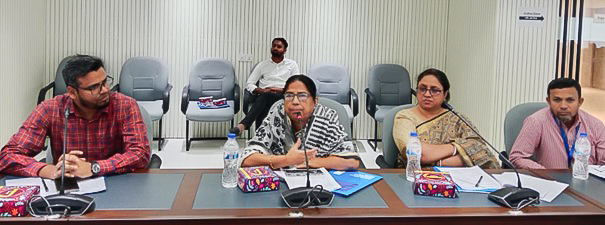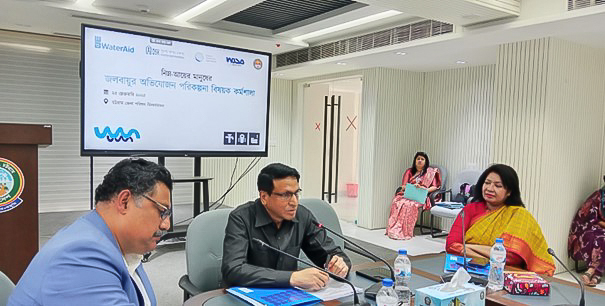
Photo credit: WaterAid Bangladesh
Chattogram, Bangladesh, 25 February 2025 — Representatives of low-income communities from 106 informal settlements in Chattogram, Bangladesh, presented their draft People’s Adaptation Plans to representatives of the City Corporation and to project staff of the World Bank’s Chattogram Water Supply and Sanitation Project (CWSIP) on 25 February 2025. These Plans will inform investments under CWSIP, which aims to improve water and sanitation services low-income communities in the city.
The locally led adaptation planning process in the 106 settlements is supported by the Global Center on Adaptation (GCA), with funding from the Foreign, Commonwealth and Development Office (FCDO) of the UK Government, and in partnership with WaterAid Bangladesh and Dushtha Shasthya Kendra. Following best practice identified in GCA’s Locally Led Planning: A Guide for Building Climate Resilience In Urban Informal Settlements, community members were trained to collect data and information related to climate resilience and share it back with their communities to support them in identifying and prioritizing climate threats and solutions. The planning process was also informed by a future climate risk assessment report prepared by the Chattogram University of Engineering and Technology.
Chattogram Mayor Dr. Shahadat Hossain described the Plans as inspiring and invited the communities to engage in an iterative planning and implementation process to ensure they are kept up to date and acted upon.
Over 120 key stakeholders attended the meeting, including community members and representatives of Chattogram City Corporation, Chattogram Water and Sewerage Authority (CWASA), Chattogram Development Authority, Zila Parsad, Office of the Divisional Commissioner, Department of Environment, Department of Social Welfare, civil society organizations, and the media.
Water security is under constant threat in the coastal city of Chattogram, with salinity levels rising in both surface and ground water sources. The city relies heavily on the Halda and Karnafuli Rivers for water supply, but salinity levels rise to 2500 milligrams per litre (mg/l) during the summer months, compared to the permissible level of 350 mg/l. The residents of informal settlements, in particular, are then forced to pay private vendors 10-60 times more than the city’s formal residents because they lack piped supply. CWSIP aims to address this disparity by extending CWASA’s water distribution networks to 25 of the city’s 435 low-income communities.
Community recommendations, tailored to each specific ward based on practicality, include the extension of CWASA’s water distribution network; re-excavation and expansion of water bodies; measures to prevent saltwater intrusion into freshwater sources; and water treatment plants.
Community members also took the opportunity to discuss longstanding issues with CWASA. Salma Begum, a community representative from Ward 39, said her Ward is connected to the pipeline but does not receive supply. In response, CWASA Managing Director Muhammad Anwar Pasha, promised improvements in CWASA’s complaints and grievance mechanisms.

Photo credit: WaterAid Bangladesh

Photo credit: WaterAid Bangladesh